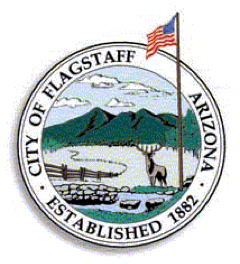 FLAGSTAFF — The Flagstaff City Manager’s Compounds of Emerging Concern (CEC) Advisory Panel met Nov. 3 to review the panel’s final report and provide recommendations.
FLAGSTAFF — The Flagstaff City Manager’s Compounds of Emerging Concern (CEC) Advisory Panel met Nov. 3 to review the panel’s final report and provide recommendations.
The CEC Advisory Panel first met in January 2013 and is made up of 12 local, state and nationally recognized researchers, scientists and industry professionals. The Panel was asked to help the city to better understand the effects that CECs have on our raw, treated and reclaimed water and what, if any are the potential human health effects of using reclaimed water in our community.
The Final Report and Panel meeting provided a summary conclusion to the five (5) year collaborative work conducted by the Panel. The report contains the analytical results of sampling conducted by the City in 2014 and 2015. Over the past five years, the City has sought advice from the Panel on the meaning of these CEC analytical results and whether they warrant concern or modification of Flagstaff’s use and management of reclaimed water. This effort has looked at both chemical and antibiotic resistance aspects of CECs.
As a framework, the Panel divided CECs into three categories: pharmaceuticals, endocrine disrupters, and antibiotic resistance genes (ARG). The Panel also categorized CECs into chemical and microbial – pharmaceuticals and endocrine disrupters being the former and ARGs and any associated antibiotic resistant bacteria (ARB) being the latter. Flagstaff’s water system currently meets all U.S. EPA and state regulatory requirements. All analyses of recent samples collected from our source water and the distribution system are below the primary (regulated) and secondary (nonregulated) maximum contaminant level (MCL) standards.
“The city is very pleased to have worked with the Panel over the past five years to advance the science and understanding of the human health risks of using reclaimed water in our community” said Brad Hill, Water Services Director. “The Panel’s findings are reassuring and we grateful for the time and efforts of the panel members.”
In July 2013, the Advisory Panel concluded that there were no data to suggest that the continued use of reclaimed water provides undue risk to human health. After four years of study, the Panel agreed with their initial conclusions and made no additional recommendations to how Flagstaff manages and uses reclaimed water. The Panel did provide suggestions for follow-on research and monitoring of the presence of ARBs and ARGs in reclaimed water, comparing to relevant local and national data.
